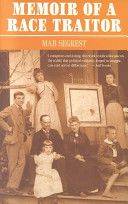Memoir Of A Race Traitor
Mab Segrest
As Segrest explains: ‘The Reagan era made it clear: there is no separate safety’ (p. 49). Southern white lesbians’ very existence exposes the lie of the historic race-sex myth in which white supremacy and racist violence were perpetuated in defense of white women’s sexuality (i.e., heterosexuality) . If southern white heterosexual women benefited little from such ‘protection’ (as the Association of Southern Women for the Prevention of Lynching asserted more than sixty years ago) , lesbians have had even less to gain. Nor is it insignificant that some of the most insistent white critics of white supremacy have been southern lesbians – e.g., Lillian Smith, Minnie Bruce Pratt – a phenomenon Segrest might have explored more fully. Of course, she also knows that a lesbian standpoint, no matter how marginalized, does not necessarily lead to an anti-racist stance: ‘For many lesbian and gay people of color, it is every bit as much an expense of spirit to be in a room with us radical queer white activists as with the most hair-raising fundamentalist minister – just as exhausting and insulting’ (p. 238).
Like Segrest herself, who is an activist, a writer and an academic, this book also crosses boundaries. Although her intention to disrupt the false objective/subjective, reason/emotion dichotomy is admirable, the result is uneven. The sections on her family – several generations of Alabama kin on both sides – are beautifully and poignantly written and will resonate with many whose politics stand in opposition to the ‘family values’ of their parents. Segrest writes of her father, an ardent segregationist who organized private white schools throughout Alabama following the Brown decision and whom she attempts to ‘out-organize’: ‘I have made a profession of being better than him’ (p. 3). Her mother’s skin disease becomes a symbol of American race relations: ‘There was a metaphor in the itching and inflamed skin that I learned too well, this sensitivity to environment that left our mother tearing at her own flesh like she was allergic to life itself. When racist violence in Alabama erupted like the lesions on my mother’s arms, I was not surprised when it all came down to skin’ (p. 3).
Her eventual rapprochement with her family, especially her father, is both healing and transformative: ‘When had my ‘racist daddy’ contracted to himself – to one aging man – from the balloon into which I had inflated him: a caricature of everything in the culture that I hated, my archetypal white person whom I could never convert because I could never accept, the him of me? No Black friend had ever asked me not to love my daddy’ (p. 173). Other sections, such as the brief overview of the history of racism, are more problematic. Admittedly, her task is nearly impossible; she tells us, ‘I have attempted this overly ambitious project, not with a scholar’s time and degree of specialization, but with an organizer’s urgency’ (p. 186). But while Segrest is correct in linking economic forces and racism, her account is an oversimplified and overly deterministic analysis that treats capitalism as the sole cause of almost every oppression and sees racism as historically inevitable.
Still, Segrest should be applauded for placing her personal Odyssey – a process which is ‘usually privatized in therapy discussions of ‘dysfunctional families” (p. 218) – within a broader historical framework that places racism at its center. Segrest knows that readers may find more than this chapter problematic. She warns us: ‘You will know when the tone shifts.
I cannot write a ‘whole’ book about a broken world’ (p. 2). Yet paradoxically, Segrest’s journey – including her antiracist activism, reconciliations with family, and new, genuine relationships with people of color – in the end, makes her ‘whole.’ Hence, we ought to heed her caveats and not let the structural, stylistic and even analytical lapses distract us from the larger import of this book – that interrogating whiteness and the struggle against racism are not simply intellectual or political projects, but are also fundamentally human, experiential endeavors that have transformative and redemptive power. In effect, Segrest’s call for ‘queer socialism’ (p. 241) invokes a vision of a newly invigorated, politically sophisticated beloved community based on ‘the revolutionary concept of human dignity and equality’ (p. 244). ‘How we treat one another matters more than any particular ‘win’ because our goal is a transformed culture which also requires trans- formed human relationships’ (p. 245). Ultimately, this is a book about hope, maybe even an inspiration to a Reagan/Bush generation of cynics who believe that collective protest is outdated, impossible or both. Segrest’s memoir is also a reminder to those of us who are dedicated to social justice that we must be around for the long haul. In a world where media sound-bites and promises of quick-fixes too often substitute for critical analysis, commitment, and hard work, this is indeed a timely exhortation. ~ Christina Greene, Duke University, The Georgia Historical Quarterly, Vol. 79, No. 3 (Fall 1995).
Check for it on:
Details
| ISBN | 9780896084742 |
| Genre | History; Memoir |
| Copyright Date | 1994 |
| Publication Date | 01-Jul-99 |
| Publisher | South End Press |
| Format | Trade Paperback |
| No. of Pages | 274 |
| Language | English |
| Rating | NotRated |
| Subject | Civil Rights Movements – Southern States; Civil Rights Workers – Biography. – North Carolina; Feminism – Southern States; Lesbians – Biography. – North Carolina; Southern States – Race Relations |
| BookID | 8219 |
